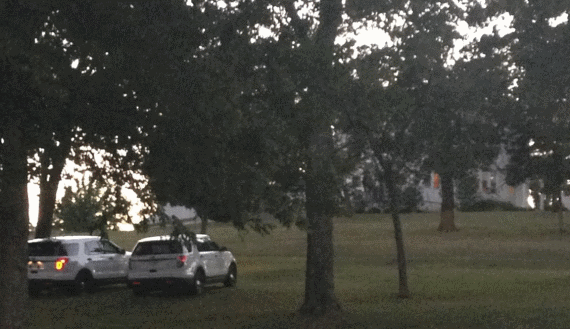By Heide Brandes, Reuters
(Reuters) – Oklahoma Governor Mary Fallin on Wednesday stepped up pressure on the biological father of “Baby Veronica,” a 3-year-old Native American girl caught in a protracted adoption custody battle, warning him to cooperate with the girl’s adoptive parents or face charges for interfering.
After initially declining to sign an extradition warrant for biological father Dusten Brown to face felony charges in South Carolina, where the girl’s adoptive parents live, Fallin warned Brown that if he did not meet the adoptive parents, Matt and Melanie Capobianco, in Oklahoma, she might force him to go to South Carolina.
“Mr. and Mrs. Capobianco deserve an opportunity to meet with their adopted daughter. They also deserve the chance to meet with Mr. Brown and put an end to this conflict,” Fallin said on Wednesday. “If Mr. Brown is unwilling to cooperate with these reasonable expectations, then I will be forced to expedite his extradition request and let the issue be settled in court.”
The case has highlighted overlapping parental claims in two states and the clash between a Native American culture seeking to protect children from being adopted outside their tribes and U.S. legal safeguards for adoptive parents.
Veronica’s birth mother, who is not Native American, arranged the adoption with the Capobiancos before the girl was born. Veronica lived with them after her birth in 2009. Brown intervened in 2010 before the adoption process was final, and a South Carolina family court ordered that Veronica be turned over to Brown in December 2011.
Brown, a member of the Cherokee Nation who was not married to the birth mother, argued that the Indian Child Welfare Act of 1978 allowed him to have Veronica, who is 3/256th Cherokee.
The law was intended to keep Native American children from being separated from their families.
In June, the U.S. Supreme Court overturned the ruling, and the adoption was finalized in South Carolina in July.
But Brown refused to give up Veronica and was arrested on August 12 in Oklahoma on a charge of “custodial interference.”
South Carolina is seeking his extradition.
Veronica is believed to be staying with Brown’s relatives in Oklahoma.
The adoptive parents are in Oklahoma this week to try to visit Veronica and resolve the case. After the couple were denied the opportunity to see her, they called on Brown on Wednesday to meet with them and reach a compromise.
“I look forward to when we can restore our private life with Veronica,” Melanie Capobianco said at a news conference Wednesday in Tulsa, Oklahoma. “We want to ensure a lifelong relationship with her Oklahoma family as well. We want to see a resolution for Veronica.”
Cherokee Nation leaders said on Wednesday that Brown has the right to have his arguments heard in court hearings in Oklahoma and asked that he be allowed his “due process.” Brown is scheduled for a hearing September 12 to contest his warrant.
“We will continue to stand by Dusten and his biological daughter, Veronica, and for what is right,” said Cherokee Nation Principal Chief Bill John Baker.
Troy Dunn, a lawyer who specializes in locating and reuniting birth families and adopted children, joined the Capobiancos in seeking a compromise.
“I think it may be possible to structure an arrangement to allow Veronica to be the most loved girl,” Dunn said. “A resolution can be sculpted if Dusten is willing to participate.”
(Additional reporting by Harriet McLeod in Charleston, South Carolina; Editing by Karen Brooks and Ken Wills)







